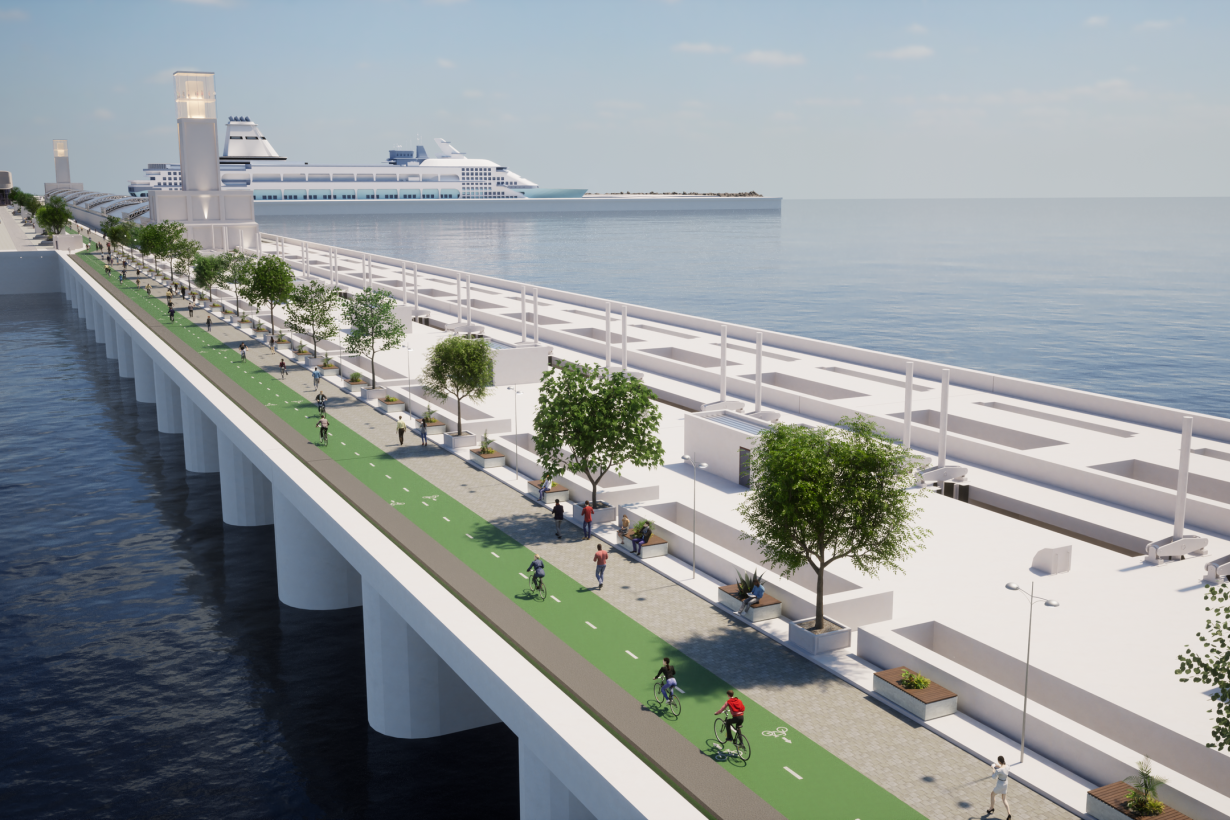Multibillion-pound tidal energy scheme would see barrage built across Mersey
The barrage, which could include cycling and pedestrian routes, was confirmed on Thursday as the preferred option for the Mersey Tidal Power project.

A multibillion-pound tidal scheme to generate renewable energy from the River Mersey would see a barrage built linking Liverpool and Wirral, it has been announced.
The barrage, which could include cycling and pedestrian routes, was confirmed on Thursday as the preferred option for the Mersey Tidal Power project.
Members of the Liverpool City Region Combined Authority will be asked at a meeting later this month to approve the submission of a scoping request – setting out the proposals for what would be the world’s largest tidal scheme – to the Planning Inspectorate.
Beyond the banks of the River Mersey, this is a national infrastructure asset that could position the UK as a global leader in the renewables race and help to turbocharge our net zero ambitions
Mayor of the Liverpool City Region Steve Rotheram said: “Mersey Tidal Power has the potential to generate clean, predictable energy for 120 years, create thousands of green jobs and apprenticeships – and all but seal our area’s status as Britain’s renewable energy coast.
“Beyond the banks of the River Mersey, this is a national infrastructure asset that could position the UK as a global leader in the renewables race and help to turbocharge our net zero ambitions.
“We are under no illusions – we know there are still significant technical and financial challenges to overcome – but the plans we’ve unveiled today mark a huge step on our journey to bringing Mersey Tidal Power to life.
“Quite simply, the case for tidal has never been clearer – both for our economy and our planet.”
The scheme, which the authority says could be up and running within a decade, would need Government support to go ahead.
Plans for a barrage across the Mersey have been suggested before but have never come to fruition.
Feasibility studies were carried out in the early 1990s and another project was abandoned in 2011.
Concerns have been raised about the environmental impact of a development, with Cheshire Wildlife Trust warning it “has the potential to cause significant environmental damage” to the habitat of tens of thousands of feeding birds.
We need to ensure we are extremely aware of our sensitive local ecology
David Baines, Liverpool City Region Combined Authority portfolio holder for net zero and air quality, said: “Harnessing the power of the River Mersey to generate green and predictable energy for the next 100 years and more would be an incredible addition to our clean energy mix.
“We need to ensure we are extremely aware of our sensitive local ecology, but just reaching this stage in the Mersey Tidal Power project has taken a huge amount of hard work allied with vision and would be a big step towards it becoming a reality.”
If members at the meeting on March 15 agree to submit a scoping request, a period of engagement would be held with stakeholders, regionally and nationally, a spokesman for the combined authority said.
A report to the authority said the barrage would be a less expensive option than a lagoon and would offer other advantages, including the potential to help manage issues related to climate change, such as the effects of sea level rise.
The scoping opinion would be the first step to preparing a Development Control Order (DCO) submission – a process needed for nationally infrastructure developments and expected to take two to three years.
Bookmark popover
Removed from bookmarks